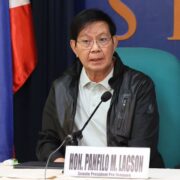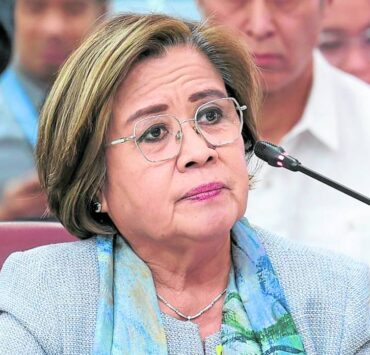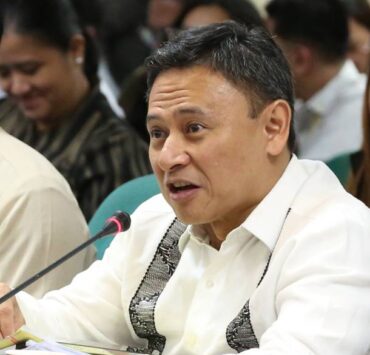Morales vs Martires: Clashing views on Villanueva case
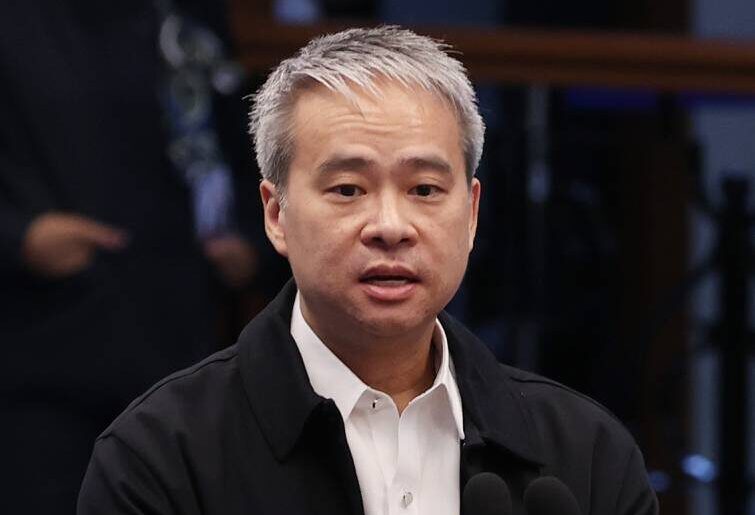
The rival resolutions on the administrative and criminal charges against Sen. Joel Villanueva show the arguments presented by two ex-Ombudsmen, both former Supreme Court justices, who have virtually locked horns over whether he should be dismissed from public office and banned from government service for life.
What stands in the case now is the decision by former Ombudsman Samuel Martires to reverse the two 2016 orders by his predecessor, Conchita Carpio Morales, against the senator for misusing P9.7 million in his Priority Development Assistance Fund (PDAF) when he was the representative of Citizens’ Battle Against Corruption (Cibac) party list.
But Martires’ 2019 ruling surprised many, not least the current Ombudsman, Jesus Crispin Remulla, who called it a “secret decision” that came to light only after he announced that he would pursue Villanueva’s dismissal in a letter to the Senate seeking to implement Morales’ order.
Two Morales resolutions
Remulla said he would make public the decisions of Martires, his predecessor who retired in July without announcing that he had overturned Morales’ rulings three years earlier. What was also surprising was that Villanueva himself kept quiet about it, considering that it was an exoneration from an alleged wrongdoing.
Morales had issued two resolutions against Villanueva—one 40-page administrative decision to dismiss him and several other government officials from public office, and the other a 55-page criminal complaint for graft for “ghost/nonexistent” agricultural projects in Compostela Valley province in 2008.
Charged with him were his staff in the House of Representatives Ronald Samonte, former Agriculture Secretary Arthur Yap and several other officials and employees of National Agribusiness Corp. (Nabcor).
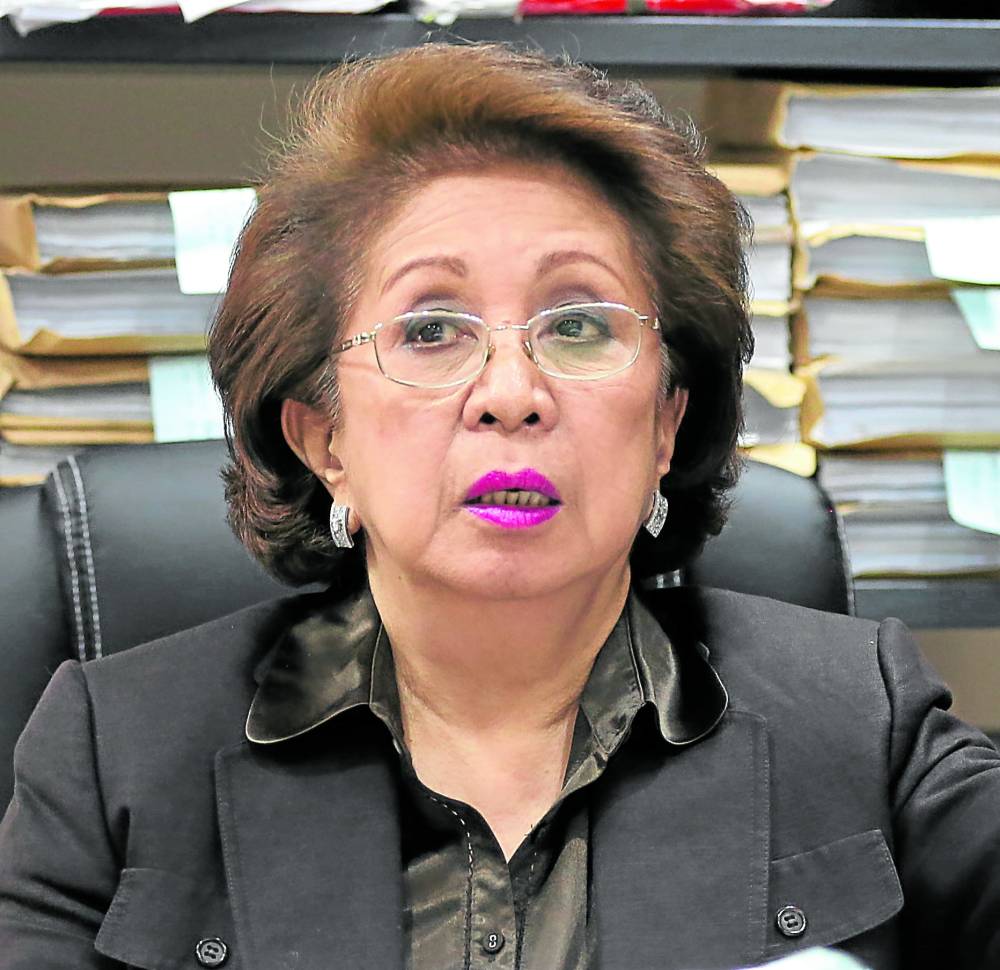
On Oct. 11, 2016, when Morales ruled on the administrative and criminal charges, Villanueva had already been elected senator. She wrote then Senate President Aquilino “Koko” Pimentel III a month later asking the Senate to implement the decision.
Members of Congress are exempt from disciplinary actions by the Ombudsman. But in her decision, Morales said Villanueva was never elected as a congressman and only took his House post as one of the nominees of Cibac. After leaving the House and before being elected to the Senate, Villanueva served as head of the Technical Education and Skills Development Authority.
Martires approved the reversal of Morales’ administrative order on Sept. 13, 2019, and the reversal of the criminal charges against Villanueva on Oct. 18, 2019. Both decisions were not publicly disclosed at the time.
Points of contention
Critics of Martires say that the supposed secrecy may get him in legal trouble if these reversals did not reach the prosecution or the complainants.
Among the points of contention between the two retired Supreme Court justices was how Villanueva allegedly misappropriated his PDAF through nonexistent projects.
For Morales, PDAF allocations are considered “personal funds” of lawmakers that they receive due to their position over which they have “effective control.”
She said that Villanueva treated his PDAF “as if it were his own funds, dictating how it should be utilized and released.”
Villanueva had identified the projects to be implemented, as well as the organizations that would implement them, and even determined “how much of his PDAF should go to the ‘projects,’” Morales said.
Belied by local officials
“Simply put, Villanueva’s acts sufficiently establish that he exercised effective control over his PDAF,” she said.
In the administrative dismissal order, Morales said that Villanueva “diverted” his PDAF allocations for 2008 through a scheme marked by quick fund releases and without due diligence to determine the capacity of the group he had chosen to implement the supposed agricultural projects.
“The fund intended for the implementation of the PDAF-funded projects was diverted to the possession and control of Afpi (Aaron Foundation Phils. Inc.),” according to Morales’ order, noting that the group was capitalized at P68,000—much less than the required 20 percent of project cost.
She said that there was “substantial evidence” establishing that Villanueva’s PDAF allocations were misappropriated or misused through the nonexistent projects. All the reports related to the projects were belied by the sworn statements of local government officials in the localities where these were supposed to have been implemented, she said.
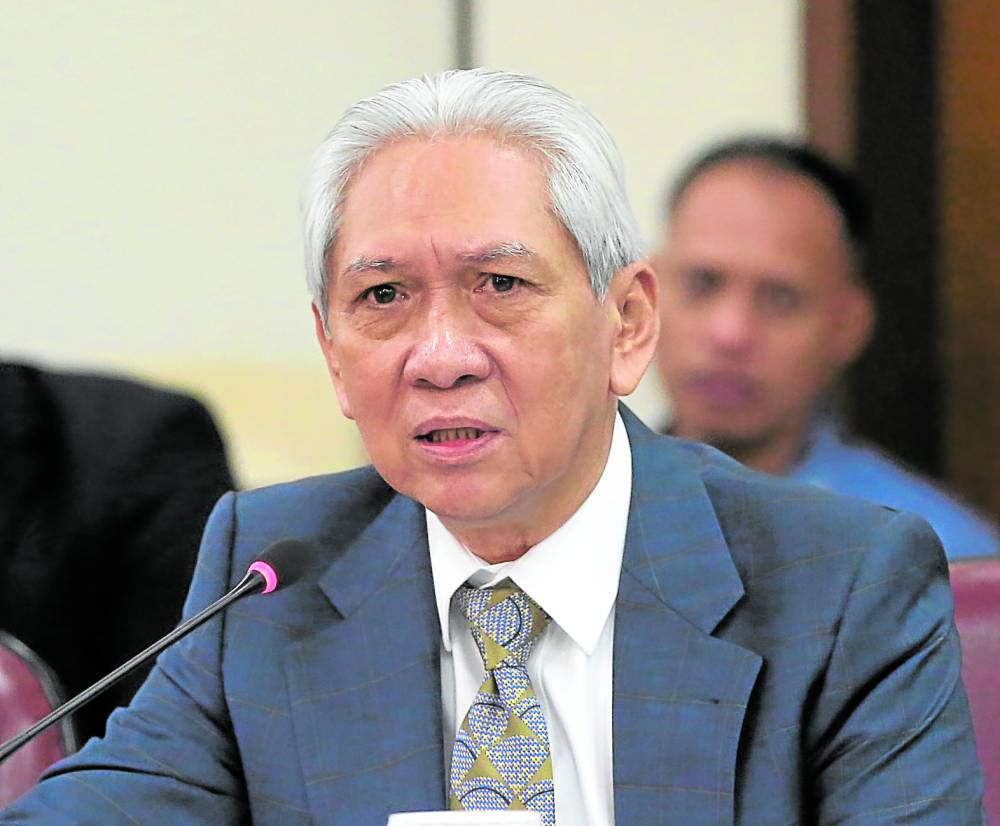
“They (Villanueva and his coaccused) deliberately violated the law and regulations when they recommended and/or approved the release and transfer of Villanueva’s PDAF to Nabcor/Afpi notwithstanding the irregularities,” according to Morales’ order.
But Martires saw “no adequate evidence” showing that Villanueva was involved in the embezzlement of his PDAF.
His resolution on the administrative dismissal order said that Villanueva’s signature on the reports on the distribution of agribusiness livelihood materials “were obviously forged,” based on a finding by the National Bureau of Investigation, which compared them to the standard and specimen signatures of the senator, and a report by a private document examiner.
No corroboration
In overturning the dismissal order, Martires said that there was also “no corroborative proof” that would establish that letters purportedly to Yap and to Nabcor president Alan Javellana to release the funds to Afpi were actually signed by Villanueva.
Both Morales and Martires agreed, however, that the government lost P9.7 million.
But Martires said that the P9.7 million of the lawmaker’s PDAF was “lost due to the actions of certain unscrupulous persons.”
He pointed out that there was “no sufficient evidence on record” showing that Villanueva and his coaccused were involved in an alleged conspiracy to defraud the government.
He said there should have been an “in-depth probe” to uncover the identities of the “actual malefactors” by first going to the source of the allegedly falsified documents containing Villanueva’s signatures.
Martires’ exoneration of Villanueva in his 10-page reversal of the administrative order and his 13-page rejection of the criminal charges was anchored heavily on the supposed forgery of the senator’s signature.
‘Forgery is not presumed’
Morales had countered Villanueva’s claim that his signatures appearing on the reports that he supposedly signed were forged.
Villanueva also denied that he signed the letters to Yap and Javellana and the list of beneficiaries of the projects, and said he didn’t have any participation in the preparation of any project documents.
Responding to Villanueva’s defense, Morales said the senator’s forgery arguments “fail to persuade.”
“Forgery is not presumed; it must be proved by clear, positive and convincing evidence and the burden of proof lies on the party alleging forgery,” Morales said. “Denial, no matter how vehement, is insufficient to prove that the signatures appearing in the PDAF documents are falsified.”
Morales also pointed out that mere variance of Villanueva’s specimen signatures “cannot be considered as conclusive proof that the same were forged.”
“Opinions of handwriting experts, even those from the NBI, are not binding upon the courts or this office,” she said.













